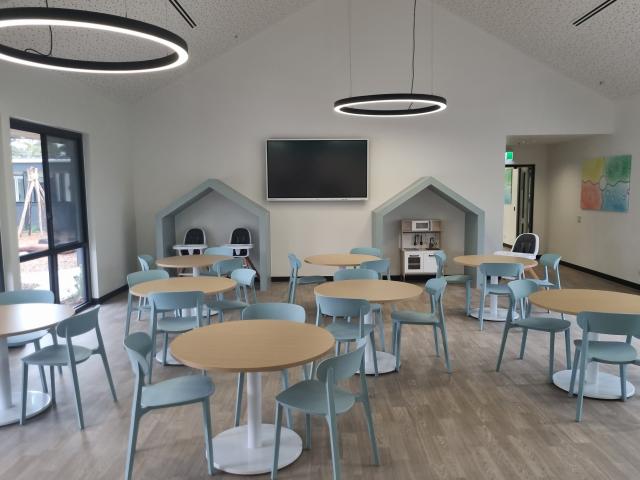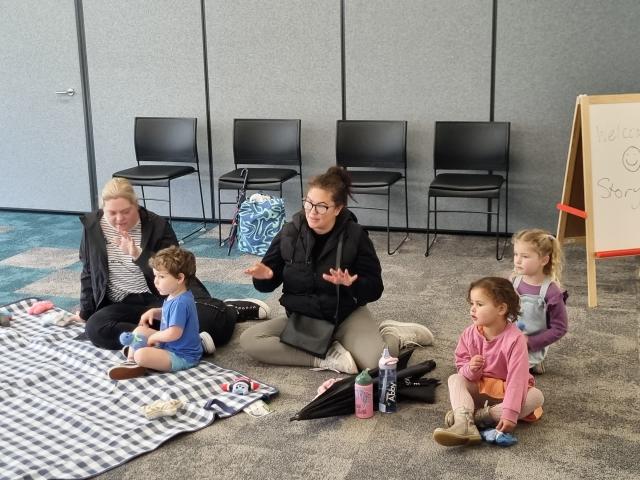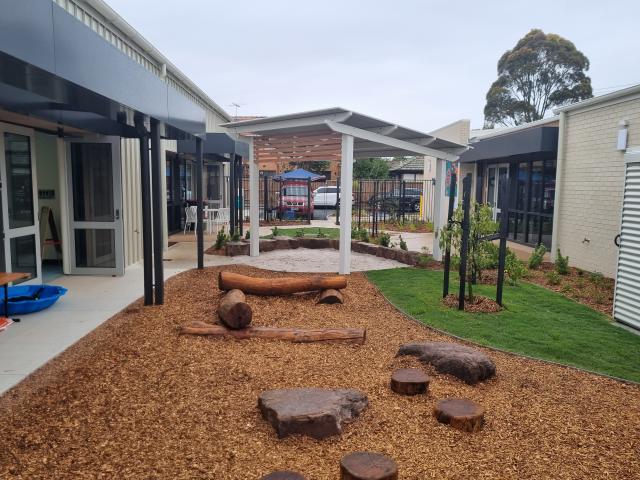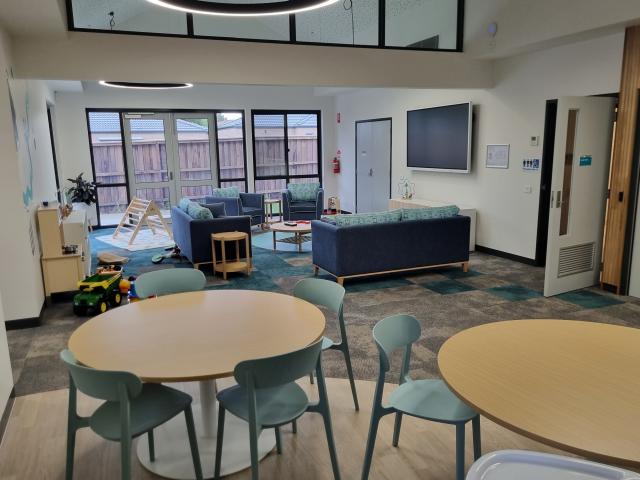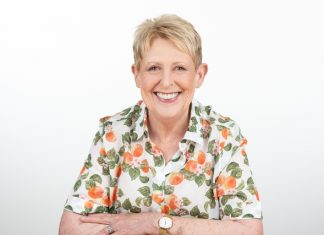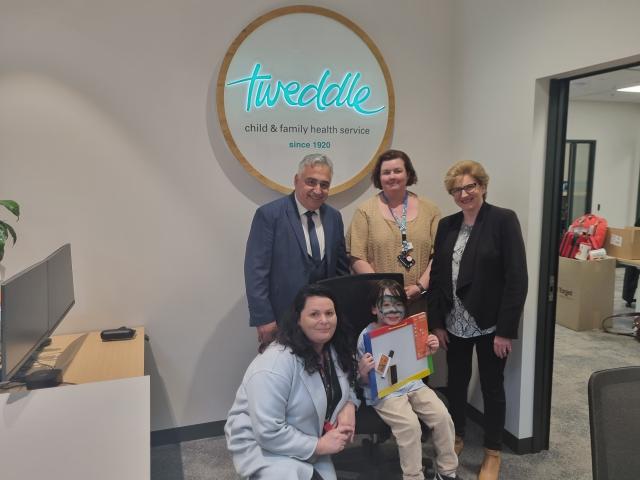
By Cade Lucas
Like changing dirty nappies or listening to nursery rhymes ad-nauseum, a lack of sleep is considered an unfortunate but unavoidable part of having a baby.
Unless wealthy enough to farm their screaming newborn off to someone else, parents usually have no option but to suffer in silence.
After all, complaining about something just about everyone else has to endure is unlikely to elicit much sympathy.
Which makes it all the more difficult when a baby’s lack of sleep goes beyond a mere nuisance to a serious, debilitating problem.
This was the situation Danielle Mannens and her partner Sean found themselves in seven years ago, in the months after having their first child, daughter Harper.
“She was sleeping with us for the whole first six months, we couldn’t get her to sleep in her own bed,” Danielle said.
“We were co-sleeping but not in the nicest way.”
In other words, they weren’t sleeping at all.
“We were lucky to be getting two hours’ sleep a night,” she said.
“It was bad. Like I wasn’t thinking straight, I was leaving the stove on and stuff like that.
“My partner would have to check everything to make sure it was all off at night.”
Family are normally the first and only source of help in such situations, but with theirs living in New Zealand, Danielle and Sean turned to the health system as a last resort.
“So I went and saw my maternal health nurse and she recommended us to Tweddle,” she said.
A not-for-profit, Tweddle is a name unlikely to register with most readers, but has been helping sleep-deprived families at its Early Parenting Centre in Footscray for more than 100 years.
Despite misgivings about seeking assistance for something most assume comes naturally, Danielle and Sean booked a day session.
“We didn’t know what we were walking into, but it was the most beautiful supportive environment,“ Danielle said.
More importantly, after taking a while to bed in, the new techniques Danielle learned at Tweddle eventually paid off.
“She was sleeping in her own bed away from us and she was doing so for almost the whole night, which was a huge difference,” she said.
If you’re wondering why no one recommended an Early Parenting Centre like Tweddle during your own bouts of infant-induced insomnia, you’re not alone.
Despite being around for more than a century, addressing a very common need, and being covered by Medicare, EPCs remain largely unknown.
Along with Tweddle in Footscray, the O’Connell Family Centre in Canterbury and the Queen Elizabeth Centre in Noble Park are the only three EPCs based in Victoria.
There are only a limited number nationwide, and Tasmania and many regional and rural areas have none at all.
Internationally, none of the UK, US or European countries to which Australia is often compared, have anything like an equivalent.
According to Tweddle CEO Umit Agis, the issue of baby and infant sleep traditionally being a family affair is why external services like EPCs can be rare or non-existent.
“I think we’re learning more as a society about how important settling a child or having a sleep routine is,” Mr Agis said.
“We sometimes take that for granted and also a lot of times people tend to access that from their family network.”
Mr Agis said infant sleep problems could result in more than just tired parents.
“Having a settled sleep pattern is critical to a baby’s to early life development,” he said.
“We know that what happens in the first 2000 days of child’s life has a major impact on their adult trajectory.”
This is why the Victorian Government is building 12 new EPCs across the state as part of a $148 million investment in early parenting services.
These will include centres in Geelong, Ballarat, Bendigo and Shepparton – the first in regional Victoria – and an Aboriginal-led facility in Frankston.
The others will target Melbourne’s urban fringe, including Wyndham in the outer-south west, the fastest growing municipality in the country and where the first of these new EPCs opened earlier this month.
The $15 million Wyndham Early Parenting Centre features 10 residential units that can accommodate entire families for up to four days, while also providing facilities for day-stays.
And like the existing facility at the other end of the western suburbs, it too is operated by Tweddle.
Mr Agis said it wasn’t just the amount of people moving to Wyndham, but the type of families settling in the area that meant an EPC was required.
“You’ve got a lot of young, immigrant parents living here and so they don’t have the support system perhaps that they once did, but what we can do is we can provide that help,” he said.
Among the providers of that help at the Wyndham EPC is nursing director Clare Pridham.
“We’re here to support the parents rather than do it for them,” she said.
“If there’s a concern about behaviour, we show them how to deal with the child’s behaviour and how to work with that child to be able to improve outcomes.
“If there are sleep concerns we can be with them at three o’clock in the morning.
“We can actually show them how to resettle and be alongside them when they’re having these concerns.”
Ms Pridham said the aftermath of the Covid-19 pandemic made the need for early parenting support even more urgent.
“There’s a lot of separation anxiety, a lack of interaction with other children because they’ve been locked down for such a period of time,” she said.
“So when it comes time for them to go into childcare or stay with grandparents, for example, there’s real challenges in that.”
Ms Pridham said the ultimate aim was to teach parents techniques that they could use at home to avoid readmission.
Danielle is a prime example.
“I’ve even used it with my second child as well because he wasn’t a great sleeper either. It’s stuck with me, it was so helpful,” she said.
After proselytising Tweddle and Early Parenting Centres to her friends, Danielle’s passion for the service saw her change careers – nearly a decade on from her visit to Tweddle, Danielle is now Tweddle’s communications manager.


